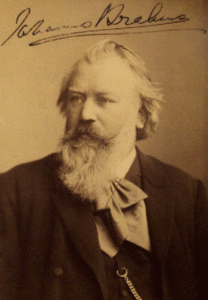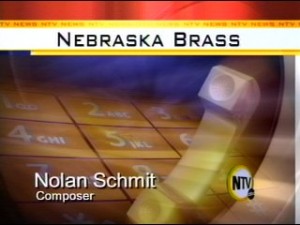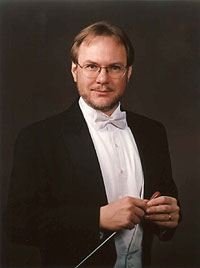
Recently a friend asked me, “Are you nervous when you are about to have a new piece premiered?” I wanted to answer honestly, but the honest answer seemed less than courageous and less than sophisticated. You see, when I was younger, I had an impression that all accomplished composers are supremely confident in the purpose of and quality of their own music. I guess that impression has affected my judgment and attitudes as an adult and I feel that I should be supremely confident as well. Don’t get me wrong, when I write, I’m confident in my work and I believe I’m being honest about what I’m composing. I just know that the more I compose, the more I learn about composing. The more I learn about composing, the more I discover how much more there is to know and learn.
When I write, it is an offering of myself to others. Most of what I write is for the pleasure and enjoyment of my audiences. It’s a gift to them. Sometimes I write something with the intent of being shocking or unsettling, but it is always with the intent of evoking emotions or sharing something I value with the audience. I hope they enjoy it.
I have met a few composers who don’t seem to care what an audience thinks and appear to have no doubt that EVERYTHING they write is a little slice from the genius cake. For these composers, their reaction to those who don’t respond favorably to their music is one of insolent condescension. Their behavior suggests that they believe the listener simply isn’t insightful or intelligent enough to grasp the music’s profound nature, or that the work is an example of such true genius that it won’t be understood and appreciated for it’s brilliance until the next generation of concert-goers experiences it. How can they feel so confident about everything? Is it bona fide genius that results in this extreme self-assurance or something else?
For pioneers of unique, progressive work, audience acceptance may not be important. True genius is often not understood or appreciated at first. Those forward thinking individuals who see the world differently than the majority are sometimes looked upon as crazy or non-conforming. For those composers, supreme confidence is something they exhibit, because they DO have an understanding that transcends the ordinary and the average.
I suspect there are also a fair number of composers for whom the desire for audience acceptance is so extreme that it manifests itself in what appears to be antithetical behaviors. In other words, they so desperately want people to like their music, and they understand that for a variety of reasons they won’t get that universal acceptance, that they feign disinterest and arrogance.
Whatever attitude the composer exhibits regarding the importance to himself/herself of the acceptance of his/her music, I would suggest that every composer writes with the intent of making an impact on the audience. The reasons for writing a particular piece of music are as varied as the composers themselves and have differing degrees of significance, relevance and worth. For some, the purpose is simply to get the music out of their heads. For some it is to complete a commission or publisher imposed deadline and to make a living. For some it is to express a personal, political, religious or philosophical conviction. For some it is to fulfill an intellectual aspiration. For some it is to create great art. For some, unfortunately, writing may be reduced to some empty, contrived exercise. Hopefully composers are writing intellectually, emotionally and aesthetically honest work that truly reflects their beliefs and convictions.
For those of us who fall somewhere between the extremes of paralyzing insecurity and absolute confidence, the desire for the favorable regard of an audience is a perfectly natural human response. Fair criticism of one’s work is not only acceptable, but I think, desired. Cruel, unwarranted disapproval, though, is what is hard to deal with, and without proper perspective, can be debilitating to the younger, less experienced composer.
Obviously, composers, artists and authors need to develop a thick skin in order to deflect the overly critical and unproductive rants of some, and a welcoming attitude for the feedback that is intended for personal and professional growth. If one is willing to put his/her work on display for others, he/she must be ready to accept the inevitable critique of others.
Back to my friend’s question: “Are you nervous when you are about to have a new piece premiered?” The honest answer is, “Yes I am, and I don’t think there will ever be a time when the approval of the audience won’t matter to me.” Will it stop me from writing? No. The need to write outweighs the fear of failure. The compulsion to create is more important than the concern of criticism. Some pieces are going to work and some pieces aren’t. Some pieces will be well received and some will be ignored. Music is not about absolutes. The creation of new music is about offering something honest of your self to others. Whether the gift is accepted graciously or not can’t be the only reason for giving it.
Forge ahead, nerves and all!







